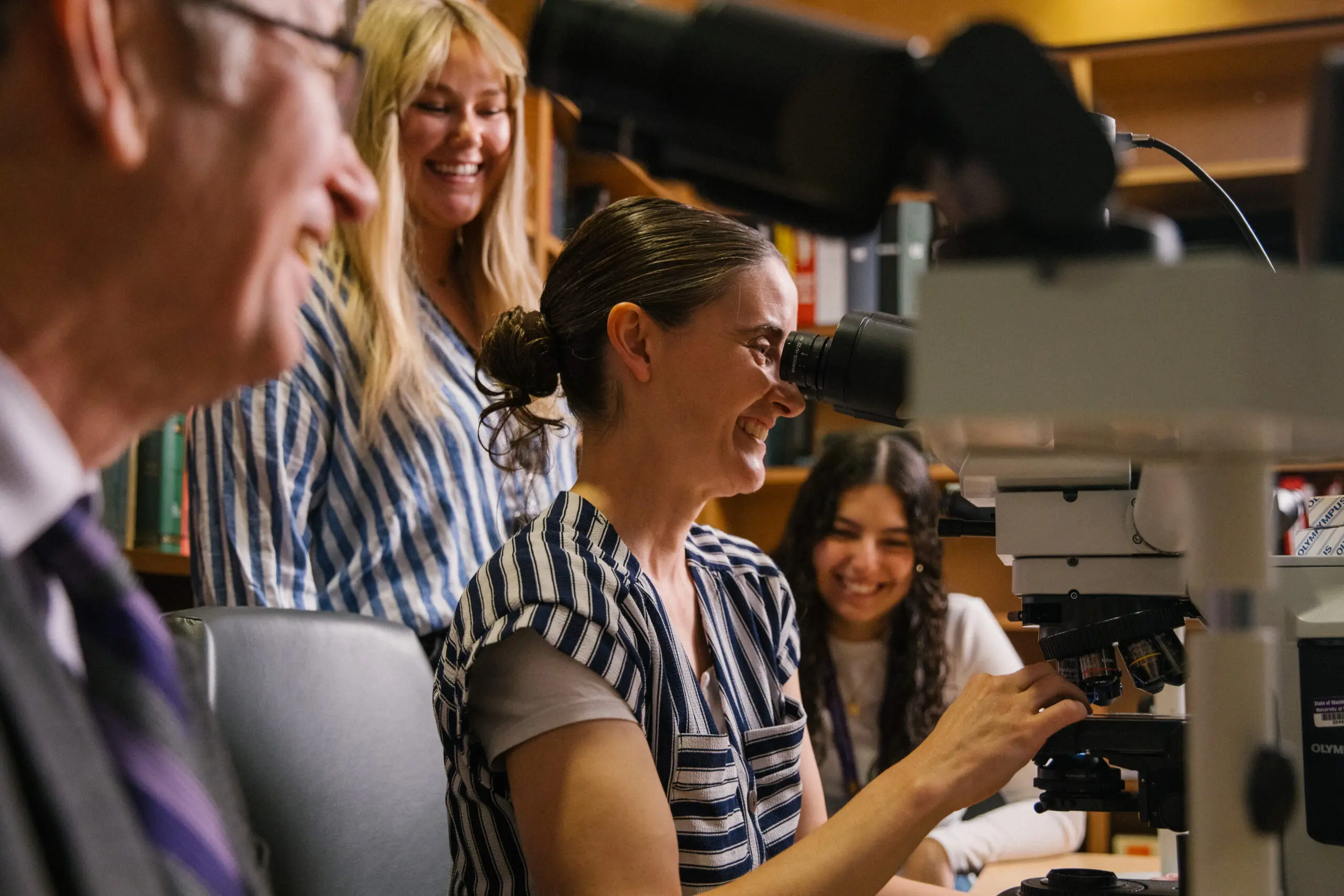Dr. Yonatan Buber’s contributions in Israel, Vietnam — and with expecting moms right here in Seattle.
It’s 5 p.m. in Seattle as Yonatan Buber, MD, cues up his slides and gives his presentation notes a final check — but for his eager audience, it’s already 7 a.m. the following day. Once a month, Buber, an associate professor of cardiology at the UW School of Medicine, leads a teleconference on adult congenital heart disease with two of Vietnam’s largest teaching hospitals. Buber helped create this unique collaboration that spans the globe — and, he says, he learns as much as he teaches.
This isn’t the first time that Buber has recognized a need, rolled up his sleeves and started a program. After medical school and residency at Sheba Medical Center in Israel, he was preparing for an electrophysiology fellowship when his mentor approached him with a proposal. Israel, with a population of 7.5 million at the time, had only one adult congenital heart disease specialist in the entire country. Would Buber be interested in creating a service line from the ground up?
Buber reluctantly agreed to an interview for an adult congenital heart disease fellowship at Boston Children’s Hospital, mostly as a favor to his mentor. Much to his surprise, Buber fell in love with the place — and the field — almost at first sight.
After completing the fellowship at Boston Children’s, he returned to Israel to start an adult congenital heart disease service at Sheba Medical Center. A few years later, once the service was established and thriving, Buber felt ready to hand it off. A former colleague recruited him to UW Medicine, where Buber appreciates the combination of academic excellence and a collegial atmosphere.
“Within the Division of Cardiology, the adult congenital heart disease service is like a little family,” says Buber. “We’re good friends with each other, and it’s fun to come to work.”
Teaching — and learning — across continents
Buber’s international seminars began about a year ago. Jim Kirkpatrick, MD, director of the Echocardiography Laboratory at UW Medical Center, brought a young attending cardiologist from Bach Mai Hospital in Hanoi, Vietnam, for congenital heart disease training in Buber’s clinic. After returning home, the cardiologist contacted Kirkpatrick to ask if there was a way to share that knowledge with more of her colleagues in Vietnam.
“There’s an unmet need in Vietnam for follow-up care from congenital heart disease providers,” says Buber. “They don’t have many dedicated providers, so they’re looking for training for their fellows and young residents.” He agreed to try a teleconference presentation with Bach Mai Hospital, and they were soon joined by University Medical Center in Ho Chi Minh City.
Each month, the Vietnamese cardiologists send patient cases to discuss. Buber presents cases on a chosen theme to an audience of several hundred, and they share best practices, guidelines and the most recent medical literature.
“It’s equal parts teaching and learning for me,” says Buber. “I enjoy understanding the way they think of and treat congenital heart disease. They’re working with equipment that’s much older than what we have, but their results are excellent.”
The program has proven very popular at both hospitals. “Dr. Buber is doing a phenomenal job leading these teleconferences with the two main teaching hospitals in Vietnam,” says Kirkpatrick. “This project continues to grow, and I believe it’s because he provides such an exceptional educational experience.”
How heart health impacts exercise capacity during pregnancy
Buber’s research interests also include exercise physiology and the effects of pregnancy on women with heart disease. Thanks to a generous gift from the UW Alpha Phi-Sigma Chapter, awarded at their 2019 Red Dress Gala fundraiser, he was able to combine these two interests in a way that will expand the knowledge around women’s heart health.
“We don’t know what happens to your exercise capacity during pregnancy,” says Buber. “So I’m studying whether cardiopulmonary exercise tests during the early phases of pregnancy can predict maternal and fetal outcomes.”
With the Alpha Phi grant, Buber is now recruiting pregnant women for exercise testing in order to establish a database of exercise physiology. The next phase of the study, for which Buber is currently seeking funding, will recruit pregnant women with congenital heart diseases for exercise testing.
Whether he’s caring for patients here in Seattle or encouraging collaborative learning around the world, Buber loves what he does. And he has even bigger dreams for the future.
“We’re at a very exciting stage of caring for congenital heart disease patients worldwide,” says Buber. “The survival trajectory of this unique patient population has dramatically improved over the past 50 years. Our job — and my focus of research — is to provide them with the opportunity for a lifestyle that’s as close as possible to that of individuals who were born without heart defects: starting a family, working full-time jobs and exercising. This requires constant evaluation, learning and adjustment of our practice-based results.”
It’s clear that Buber is ready for the challenge.

